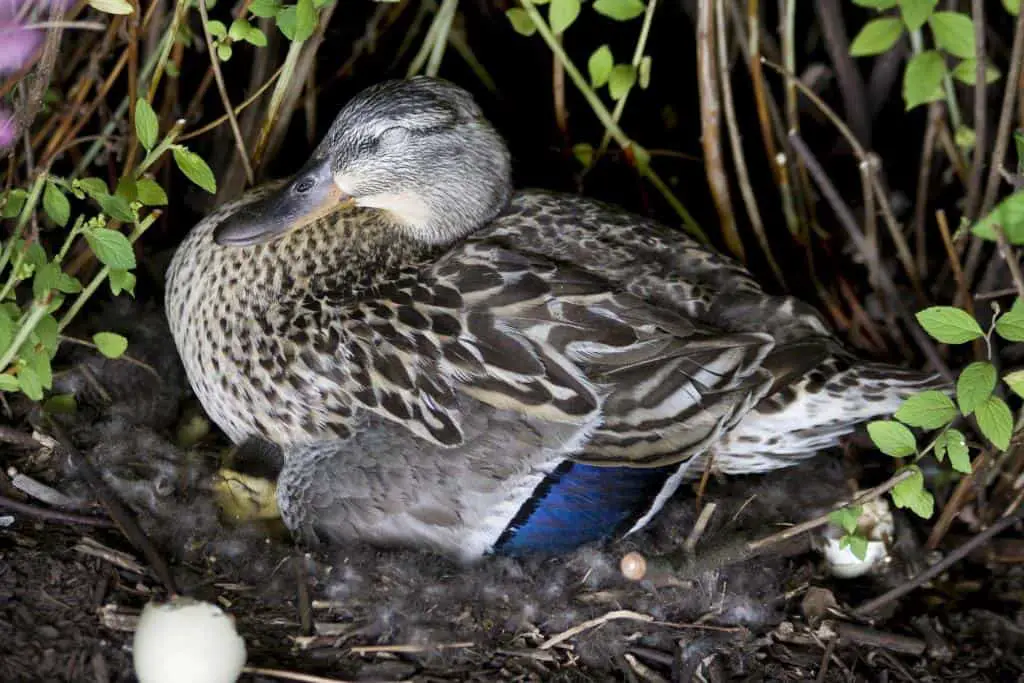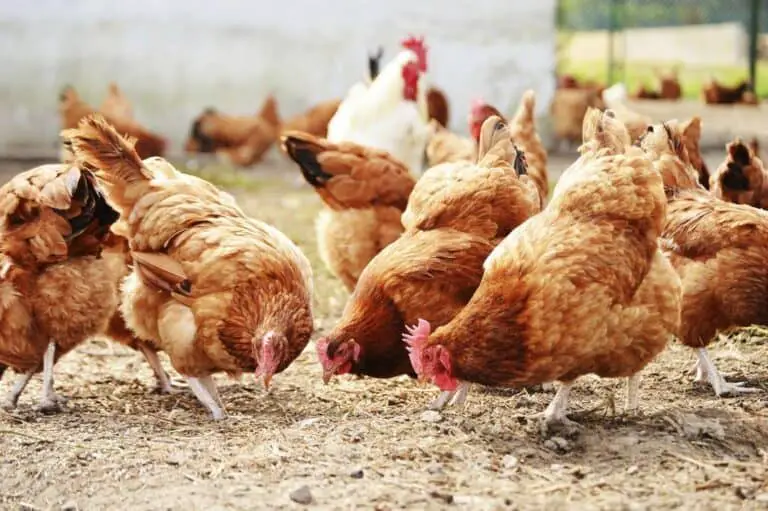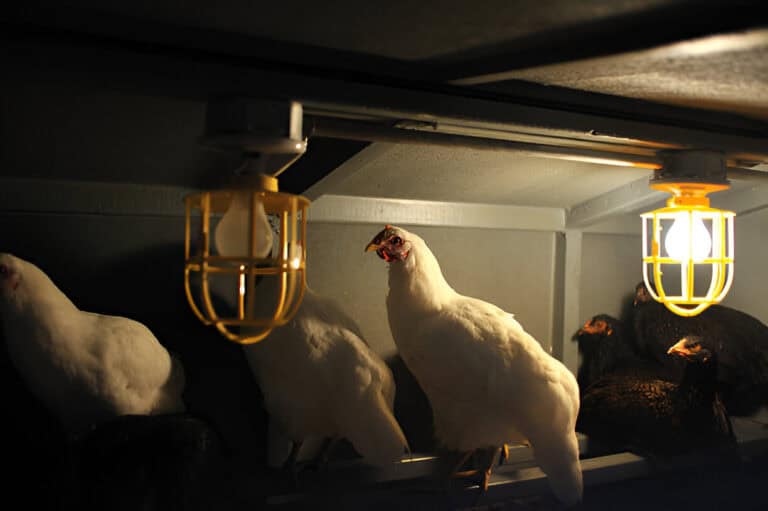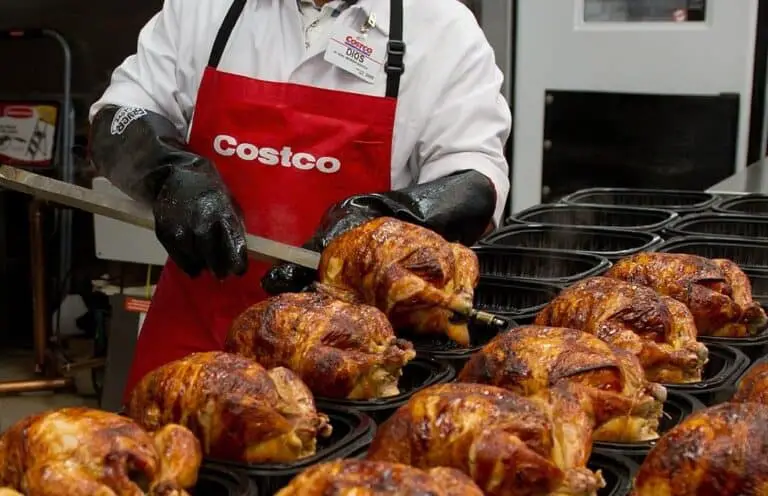When Do Pekin Ducks Start Laying Eggs and How Often?

Pekin ducks, with their distinctive white plumage and friendly disposition, are a popular choice among backyard poultry enthusiasts. These ducks are cherished not only for their companionship but also for the eggs they produce. But there’s more to Pekin ducks than just their looks; they’re also renowned for their egg-laying prowess.
Have you ever wondered when those delightful Pekin ducks begin laying eggs and how often you can expect to gather those precious orbs of deliciousness? Pekin ducks start laying eggs when they are about 5 to 6 months old.
If you’re considering raising Pekin ducks or are already a proud owner, understanding their egg-laying behavior is crucial. In this article, we’ll delve into the fascinating world of Pekin ducks’ egg production, exploring factors that influence when they start laying eggs and how often they do so.
Introduction to Pekin Ducks and Their Egg-Laying Behavior
Before we dive into the specifics, let’s start with a brief overview of Pekin ducks and why it’s important to understand how they lay eggs.
Pekin ducks, also known as American Pekin or White Pekin ducks, are a domesticated breed that originated in China. They are characterized by their pure white feathers, orange bills, and legs. These ducks are renowned for their friendly and sociable nature, making them excellent additions to backyard flocks.
They were introduced to the Western world in the 19th century and have since gained popularity worldwide. Known for their calm temperament and meaty bodies, Pekin ducks are equally prized for their prolific egg production.
The allure of keeping Pekin ducks extends beyond their charming appearance. They are prolific egg layers, making them a valuable source of fresh eggs. To make the most of their egg-laying potential and ensure their well-being, it’s crucial to comprehend the factors that influence when they start laying eggs and the frequency of their egg production.
Factors Influencing the Age of Pekin Ducks When They Start Laying Eggs

Several factors come into play when determining when Pekin ducks commence their egg-laying journey. These factors include genetic, environmental, nutritional, and health-related considerations.
1. Genetic Factors
Genetics play a significant role in determining when Pekin ducks begin to lay eggs. Different duck breeds may mature at different rates. However, individual ducks within the same breed may vary in their development.
2. Environmental Factors
Environmental conditions have a substantial impact on the timing of egg-laying. Ducks often respond to changes in daylight hours, temperature, and seasonal cues. Typically, Pekin ducks start laying eggs in the spring or early summer, when daylight hours increase and temperatures are favorable.
3. Nutritional Factors
Proper nutrition is essential for the development of a duck’s reproductive system and egg production. Ducks require a balanced diet that includes sufficient protein, vitamins, and minerals. Providing high-quality duck feed and access to fresh water is crucial for their overall health and egg-laying potential.
4. Health Considerations
The overall health and well-being of Pekin ducks play a crucial role in their ability to lay eggs. Ducks that are stressed or suffering from illnesses are less likely to lay eggs. Regular health check-ups and proper care are essential to ensuring your ducks are in optimal condition for egg-laying.
When Do Pekin Ducks Start Laying Eggs? Age of Maturity
Now that we’ve explored the factors that influence the onset of egg-laying, let’s discuss the typical age range at which female Pekin ducks start laying eggs and the variability that exists.
Female Pekin ducks usually reach sexual maturity and begin laying eggs between 5 and 7 months of age. However, some ducks may start as early as 4 months or as late as 8 months. It’s important to remember that variations in maturity age are normal and influenced by genetic and environmental factors.
It’s essential to recognize that not all Pekin ducks will follow the same timeline when it comes to egg-laying. Just as in humans, ducks have individual differences in their development. Some may start laying eggs slightly earlier or later than the average age range. Patience is key when awaiting your ducks’ first eggs.
Signs Indicating That Pekin Ducks Are Ready to Lay Eggs
To determine when your Pekin ducks are ready to lay eggs, you can observe several key signs related to their behavior, physical changes, and nesting tendencies.
Behavioral Changes
- Nesting Behavior: One of the most evident signs is when female ducks begin to exhibit nesting behavior. They may start searching for suitable nesting spots and become more protective of their chosen area.
- Increased Vocalization: Ducks may become more vocal, often quacking loudly. This can be a sign of excitement or anticipation related to egg-laying.
Physical Changes
- Abdominal Enlargement: As ducks prepare to lay eggs, their abdominal region may visibly enlarge, indicating the development of their reproductive system.
- Changes in Plumage: Ducks may also experience subtle changes in their plumage, such as a slight molting pattern or increased glossiness, in preparation for egg-laying.
- Pelvic Tilt: You can gently feel a duck’s pelvic bones to determine if they are ready to lay. When the gap between the pelvic bones widens, it suggests that the duck is nearing the point of egg-laying.
Nesting Behavior
- Ducks often search for cozy, secluded spots to lay their eggs. Providing nesting boxes filled with straw or shavings can encourage them to lay eggs in a designated area, making egg collection more accessible for you.
Read: Will Free Range Chickens Lay Eggs in the Coop?
Frequency of Egg-Laying in Pekin Ducks
Now that we’ve covered when Pekin ducks typically start laying eggs and how to identify the signs, let’s explore how often you can expect to collect eggs from your feathered friends.
How Often Do Pekin Ducks Lay Eggs?
Pekin ducks are known for their consistent egg production. On average, a healthy Pekin duck can lay an egg almost every day during their peak laying season. A healthy Pekin duck can lay anywhere from 150 to 200 eggs per year. This prolific egg-laying behavior can yield a substantial number of eggs for you to enjoy.
Seasonal Variations in Egg Production
Seasonal changes have an impact on the frequency of egg-laying in Pekin ducks. Ducks tend to lay more eggs in the spring and summer, when daylight hours are longer and temperatures are favorable. During the fall and winter months, egg production may decrease due to reduced daylight and colder weather.
Factors Affecting Egg Production Frequency
Several factors can influence the frequency of egg production in Pekin ducks:
- Daylight Hours: Ducks are sensitive to changes in daylight. Longer days in spring and summer trigger increased egg production.
- Nutrition: A well-balanced diet is crucial for consistent egg-laying. Ensure your ducks receive the necessary nutrients for optimal egg production.
- Stress Levels: Ducks that experience stress, whether from environmental changes or health issues, may reduce their egg-laying frequency.
- Age: Young ducks typically lay more eggs during their first year, with production gradually decreasing as they age.
- Breed Variations: While Pekin ducks are prolific layers, egg production can also vary slightly among individual ducks.
Seasonal Egg Production
Pekin ducks tend to follow a seasonal egg-laying pattern. They are more likely to lay consistently in the spring and summer, when daylight hours are longer and temperatures are moderate. As the days grow shorter and colder in the fall and winter, egg production may decrease.
| Season | Egg Production |
| Spring/Summer | High |
| Fall | Moderate |
| Winter | Low |
It’s important to note that while egg production may decrease in the winter, it’s not unusual for Pekin ducks to lay some eggs year-round, especially if you provide artificial lighting and maintain ideal conditions.
Nutritional Requirements for Pekin Ducks to Support Egg-Laying
Importance of Balanced Nutrition
To encourage optimal egg-laying in Pekin ducks, providing a well-rounded diet is of utmost importance. Here are the key components that constitute a balanced nutritional regimen:
- Protein: Pekin ducks require adequate protein to support the development of their reproductive system and egg production. A diet with at least 15–18 % protein content is recommended for laying ducks.
- Vitamins and Minerals: Ducks need essential vitamins and minerals, including calcium, phosphorus, vitamin D, and vitamin E, to lay strong and healthy eggs. Calcium is particularly crucial for the formation of eggshells.
- Carbohydrates: Carbohydrates provide the necessary energy for ducks to engage in egg-laying activities. Include grains like corn, barley, and wheat in their diet for a balanced carbohydrate intake.
- Fats: Fats contribute to the overall energy requirements of ducks. A diet with approximately 5-6% fat content is suitable for egg-laying ducks.
- Water: Ducks need access to clean, fresh water at all times. Water is essential for egg production, as it aids in digestion and helps maintain overall health.
Specific Dietary Needs for Egg-Laying Ducks
As Pekin ducks transition into egg-laying mode, their dietary needs become more specific. Here’s what you should consider:
- Layer Feed: Commercial layer feed is formulated to meet the nutritional requirements of laying ducks. It contains the right balance of protein, vitamins, and minerals necessary for egg production.
- Calcium: Ensure that your ducks have access to crushed oyster shells or calcium supplements. Calcium is crucial for strong eggshells, preventing shell deformities and breakage.
- Protein Boost: During peak egg-laying periods, you can offer additional protein sources such as mealworms, earthworms, or duck pellets with higher protein content.
- Free-Range Opportunities: If possible, allow your ducks some free-range time. They will forage for insects and plants, enriching their diet and providing natural variation.
Providing Suitable Nesting Conditions for Pekin Ducks
Nesting Materials and Structures
Creating a comfortable and secure nesting environment is essential to encouraging egg-laying in Pekin ducks. Consider the following when setting up nesting areas:
- Nesting Boxes: Provide suitable nesting boxes with clean straw or bedding material. These boxes should be large enough to accommodate the ducks comfortably.
- Privacy: Ducks prefer privacy when laying eggs. Ensure that the nesting area is secluded and protected from disturbances.
- Ventilation: Adequate ventilation is crucial to prevent the buildup of moisture, which can affect egg quality.
- Nesting Bedding: Use materials like straw, hay, or wood shavings as bedding. These materials create a soft and cozy nest for your ducks.
Pekin ducks are more likely to lay eggs in a secure and comfortable nesting area. Here’s why it matters:
- Reduced Stress: A peaceful and secure environment reduces stress levels, which can positively impact egg production.
- Egg Protection: A well-structured nest helps protect the eggs from damage, dirt, and breakage.
- Nesting Behavior: Ducks have natural nesting instincts. Providing a suitable environment encourages them to exhibit nesting behavior and lay their eggs in designated areas.
Nesting Preferences of Pekin Ducks
Understanding your ducks’ nesting preferences can help you create an ideal nesting space:
- Dark and Quiet: Ducks prefer dark and quiet areas for nesting. Consider adding curtains or screens to create a more secluded atmosphere.
- Low Height: Ducks typically choose nesting sites at a low height. Ensure that the nesting boxes or areas are easily accessible for your ducks.
- Cleanliness: Ducks prefer clean nests. Regularly replace soiled bedding to maintain a hygienic nesting environment.
By catering to your Pekin ducks’ nesting preferences, you can increase the likelihood of successful egg-laying and create a stress-free environment for your feathered friends.
Collecting and Storing Peking Duck Eggs
Collecting duck eggs requires care and attention to maintain their quality. Here are some best practices for egg collection:
- Frequent Collection: Collect eggs daily to prevent them from getting dirty or damaged.
- Gentle Handling: Handle eggs with care to avoid cracks or breakage. Use both hands and avoid squeezing them.
- Cleanliness: Ensure that your hands and collection containers are clean. Dirty hands or containers can contaminate the eggs.
Proper handling and storage are crucial to maintaining egg freshness and quality:
- Clean Eggs: If eggs are dirty, gently clean them with a dry cloth. Avoid washing eggs, as it removes their natural protective coating.
- Refrigeration: Store eggs in a cool, dry place or in the refrigerator. A temperature of around 45–50 °F (7-10°C) is ideal.
- Egg Rotation: Rotate stored eggs regularly to ensure that older eggs are used first.
Common Challenges in Pekin Duck Egg Production
Egg-Related Health Issues
Maintaining the health of your Pekin ducks is vital to preventing egg-related health issues. Here are some common concerns to be aware of:
- Egg Binding: This occurs when a duck is unable to lay an egg. It can be a life-threatening condition thatd requires immediate veterinary attention.
- Soft-Shelled Eggs: Insufficient calcium intake can lead to soft-shelled or shell-less eggs, which are prone to breakage.
- Egg Eating: Some ducks may develop the habit of eating their own eggs. Stress, boredom, or a lack of nutrients can all be contributing factors to this behavior.
Egg Production Problems and Solutions
Occasionally, Pekin ducks may experience challenges related to egg production. Here’s how to address them:
- Decreased Egg Production: If your ducks’ egg production decreases, review their diet, ensure they have enough light exposure, and minimize stressors in their environment.
- Inconsistent Egg Size: Inconsistent egg sizes can be normal but may also result from diet imbalances. Adjust their diet to ensure consistent egg sizes.
- Egg Location: Ducks may lay eggs in unexpected places. Encourage them to use nesting boxes by keeping them clean and comfortable.
Conclusion
In conclusion, sustainable and ethical practices not only benefit the environment and animal welfare but can also enhance the quality and reputation of your Pekin duck egg production.
Remember that the well-being of your ducks is paramount as you embark on your journey to raise Pekin ducks and enjoy the bounty of their eggs. By meeting their nutritional needs, creating a comfortable nesting environment, practicing good egg collection and care, addressing common challenges, and embracing sustainable and ethical practices, you can ensure a thriving and rewarding experience as a Pekin duck egg producer.
FAQs on When Do Female Pekin Ducks Lay Eggs?
Do male Pekin ducks lay eggs?
Do male Pekin ducks lay eggs?
What can I do to encourage egg-laying in Pekin ducks?
To encourage egg-laying in Pekin ducks, provide a balanced diet rich in nutrients, maintain a stress-free environment, and consider adding artificial lighting to simulate longer daylight hours.
Can Pekin ducks lay eggs in the winter?
Yes, Pekin ducks can lay eggs in the winter, although their egg production may decrease during this season.
What should I feed my Pekin ducks to support their egg-laying?
Feed your Pekin ducks a balanced diet with adequate protein, vitamins, and minerals. You can also supplement their diet with calcium to support strong eggshells.
How do I prevent my Pekin ducks’ eggs from getting damaged or stolen by predators?
Prevent egg damage or theft by providing secure nesting areas and collecting eggs daily. Protecting your ducks from predators is essential to safeguarding both your ducks and their eggs.





